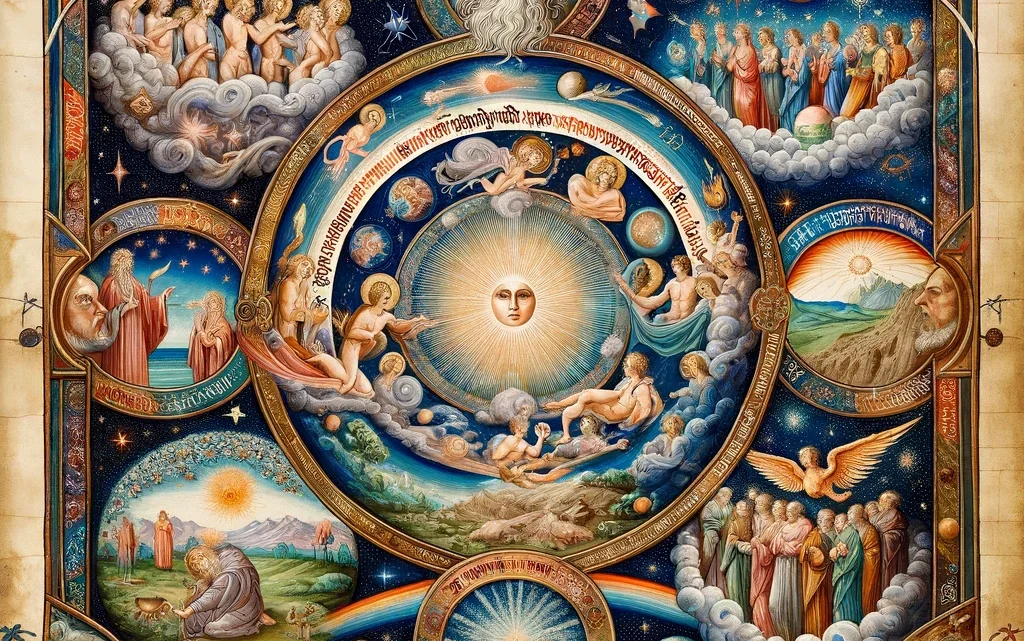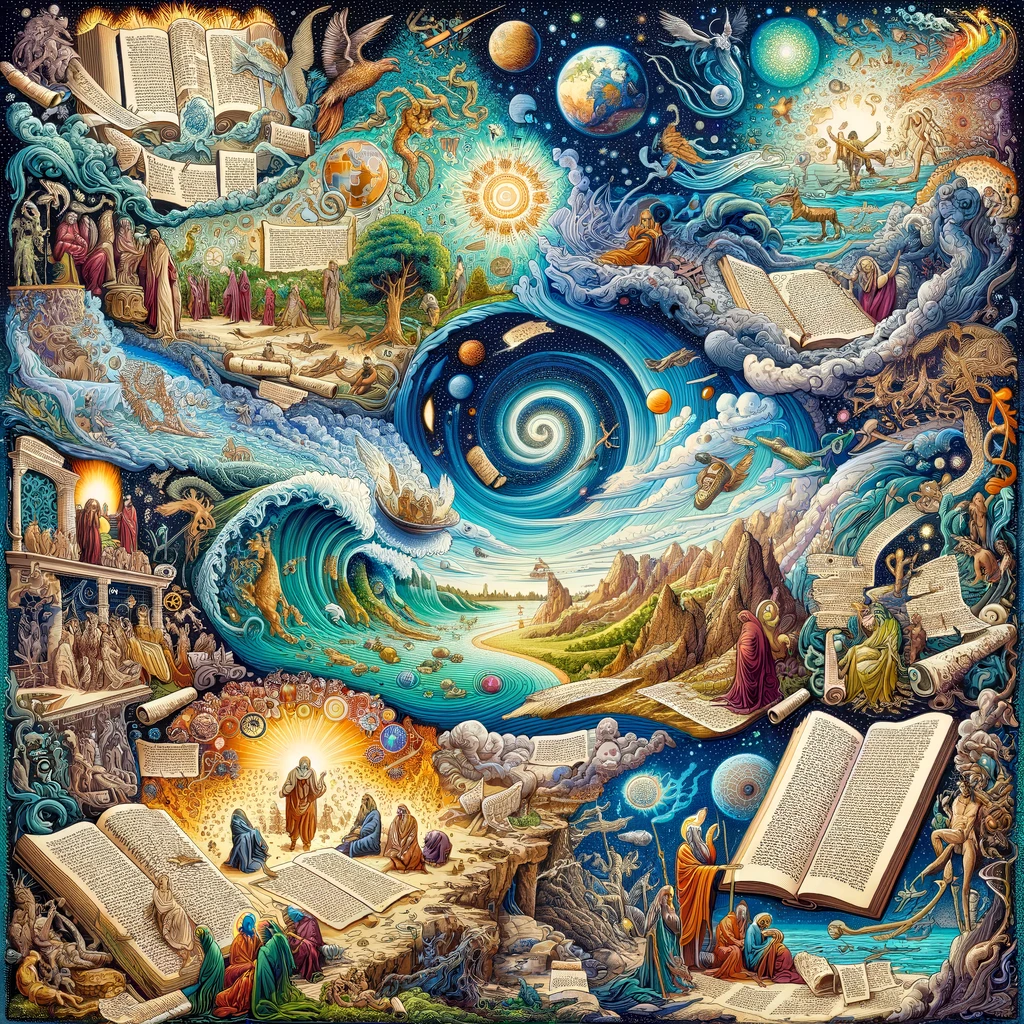“In the Beginning: Unveiling the Tapestry of Creation Narratives”


Introduction: The narrative of creation is not just a story about the origins of the earth and mankind; it’s a foundational element that shapes our understanding of the universe, the divine, and human nature. The Genesis account is perhaps the most renowned, but other ancient texts, including the Book of Jubilees and the Dead Sea Scrolls, present alternative perspectives that enrich and deepen our understanding of these beginnings.
Genesis Account: The creation story in the Book of Genesis is a masterpiece of brevity and depth (Genesis 1-2). In this account, Yehovah, with authority and serenity, speaks the cosmos into existence. The narrative is marked by a structured, almost poetic rhythm, with each day bringing forth a new element – light, sky, land, celestial bodies, animals, and finally, humans, created in Yehovah’s image. This account is distinctive in its monotheistic viewpoint, emphasizing a universe marked by order, purpose, and a divine plan. The sanctity of the Sabbath, introduced here, sets a tone for the relationship between humanity and the divine, highlighting rest and reflection.
Book of Jubilees: Contrastingly, the Book of Jubilees, often referred to as the “Lesser Genesis,” revisits these events with notable additions and details. It offers specific timelines, names the angels tasked with responsibilities in the creation process, and provides a more intricate account of Adam and Eve’s life in the Garden of Eden. This text, deeply embedded in Jewish tradition, offers a narrative that leans towards a more detailed and ritualistic interpretation of the creation story, reflecting a different facet of ancient Jewish theology and cosmology.
Dead Sea Scrolls Insights: The Dead Sea Scrolls, a collection of Jewish texts from the Second Temple period, provide a unique window into the diverse beliefs and theological interpretations of ancient Judaism. Among these texts, the Genesis Apocryphon offers an expanded narrative of the Genesis story, while other fragments present poetic and interpretive versions. These variations reflect a rich tapestry of thought within the Jewish community of the time, showcasing a range of interpretations and understandings of the creation story, from the literal to the metaphorical, and the mystical.
Comparative Analysis: A comparative analysis of these narratives reveals a fascinating spectrum of theological thought. The Genesis account, with its focus on a singular, omnipotent creator, contrasts sharply with the more detailed, angelically-involved creation process of the Book of Jubilees. The Dead Sea Scrolls add another layer, with their diverse interpretations ranging from expanded narrative accounts to poetic and mystical reflections. These differences underscore the varied theological emphases across these texts – from the portrayal of Yehovah’s power and sovereignty in Genesis, to the intricate rituals and angelic mediation in Jubilees, to the diverse and rich theological speculations of the Qumran community.
Conclusion: The exploration of these varied creation narratives offers a rich and multifaceted understanding of ancient Jewish thought. They not only illuminate the diverse ways in which different communities understood the origins of the world but also how they perceived their relationship with Yehovah and the cosmos. These narratives, each unique and profound, weave together a complex tapestry of ancient theology and cosmology, inviting us to appreciate the depth and diversity of our spiritual heritage.

